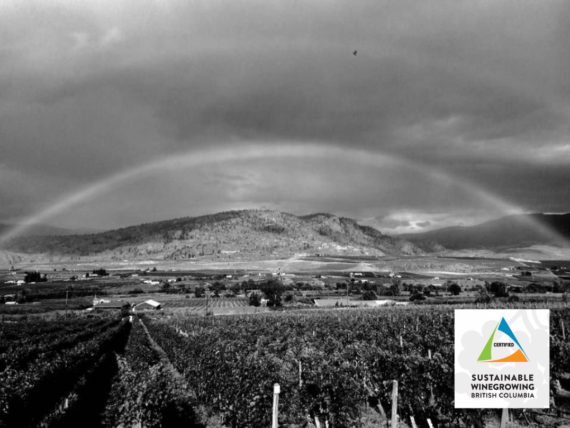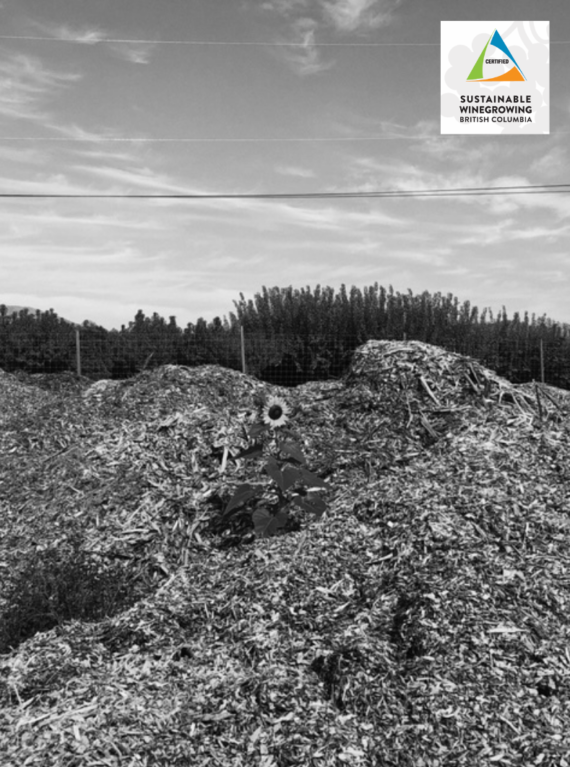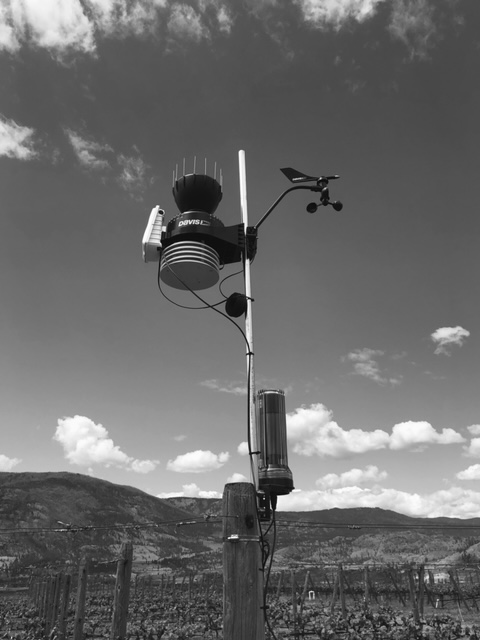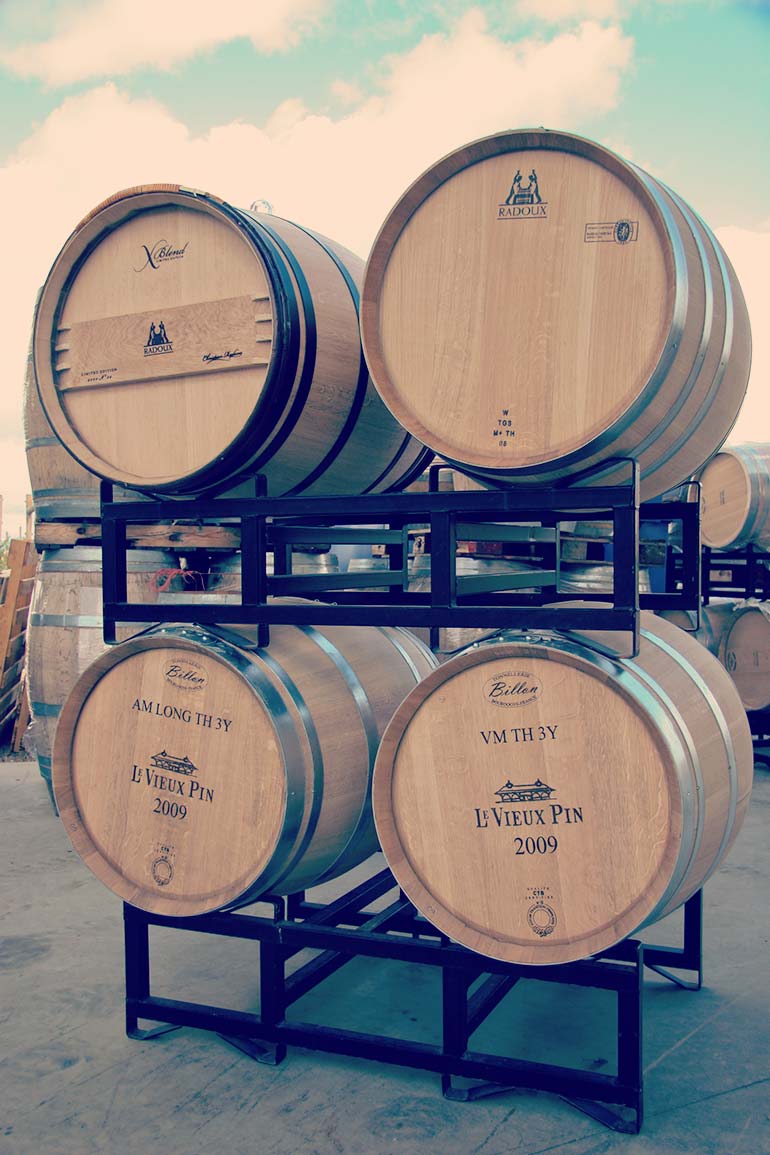September 2021 | General, Okanagan, Wine Education
Sustainability at Le Vieux Pin’s Vineyards – Part II
In our vineyards, sustainability is caring for the health of the environment and people involved in producing wine and the quality of grapes that go into the bottles of wine. It includes taking a proactive approach towards production management and enhancement, environmental stewardship, and social equity. In the words of Sustainable Winegrowing British Columbia (SWBC): Planet, people, and profits.
To meet the SWBC’s Sustainable Vineyards Standards, the essential criteria include:
- Setting a Sustainable Foundation
- Soil and Nutrient Management
- Watershed Management and Conservation
- Irrigation Optimization
- Integrated Pest Management
- Social Equity
SWBC Sustainable Vineyards Standard was created on the principle that sustainability is a path, not a destination. This certification is completely voluntary.

Le Vieux Pin acknowledges every decision in winegrowing, or viticulture, has an impact on the final quality in the bottle. Hence, we have had years of careful thought and planning, starting in the vineyard. With that in mind, we have implemented a few programs that has helped us to achieve this certification:
- Composting Project Plan (meets Soil and Nutrient Management criteria)
Every year, the vineyard produces waste from grape crushing. This includes grape skins, pulp, stems and etc. Le Vieux Pin’s Composting Project deals with this waste in a way that generates microbial-rich composts and that adds nutrition to the soil in the vineyards through Static Pile Inoculated Composting (SPIC). Vineyard waste is added to wood waste in a pile that is inoculated mixed and crushed in the winter that is ready to use in the spring. This accounts for 70-80% of the vineyard’s nutritional needs for the coming two growing seasons.

- Organic Grape Foliar Fertilizer Program (meets Soil and Nutrient Management criteria)
There is no perfect single seasonal nutritional program that fits all cases. Therefore, for maximum effectiveness, any program must be modified to each specific situation based on soil and tissue analysis and on historical data and knowledge of the particular field. Le Vieux Pin is constantly updating this data and expanding our knowledge of each vineyard to ensure this program is successful.
- Spill Prevention and Response Plan (meets Integrated Pest Management criteria)
This Plan is designed to handle the requirements for this system and associated hazardous substances. The plan will be updated if the hazardous substances inventory changes. General requirements for any hazardous substances stored or used at this facility include:
- Ensuring all hazardous substances are properly labelled
- Storing, dispensing, and /or hazardous substances in a way that prevents releases.
- Providing secondary containment when storing hazardous substances in bulk quantities (>55g)
- Maintaining good housekeeping practices for all chemical material at the facility
- Routine/Daily checks in the hazardous storage area during the active season

These programs have met the criteria required for the Sustainable Vineyard Standard and Le Vieux Pin Winery successfully completed a Certification Audit that ensures all SWBC standards were adhered to this year.
We are delighted to celebrate this achievement with everyone. We know that when achievements are shared, waves of impact from these decisions, programs and continuous improvement go beyond the winegrowing industry for generations to come!
Quotes from Members of Staff: What it Means to be Sustainable
“It’s incredibly important and appreciated to be a part of a progressive minded company. We are stewards of our land and part of a greater community, with finite resources that must be protected. Lack of past foresight has placed us in a precarious spot. It’s imperative that we consider the impacts today’s actions have on tomorrow”
“Being sustainable means:
- Using only organic products in our vineyard, to make wine and in every aspect of the business (cleaning for example)
- Better understanding of what our vineyards need, in term of water, fertilizer, … Make sure not to overuse the resources that we have
- Try to work with local business as much as we can. Circular economy. Reduce our carbon footprint.
- Work to improve our technic and our practices to be in better harmony with our planet (compost, solar energy, recycling, irrigation, reusing water, …)”
Written by Nicole Lee
